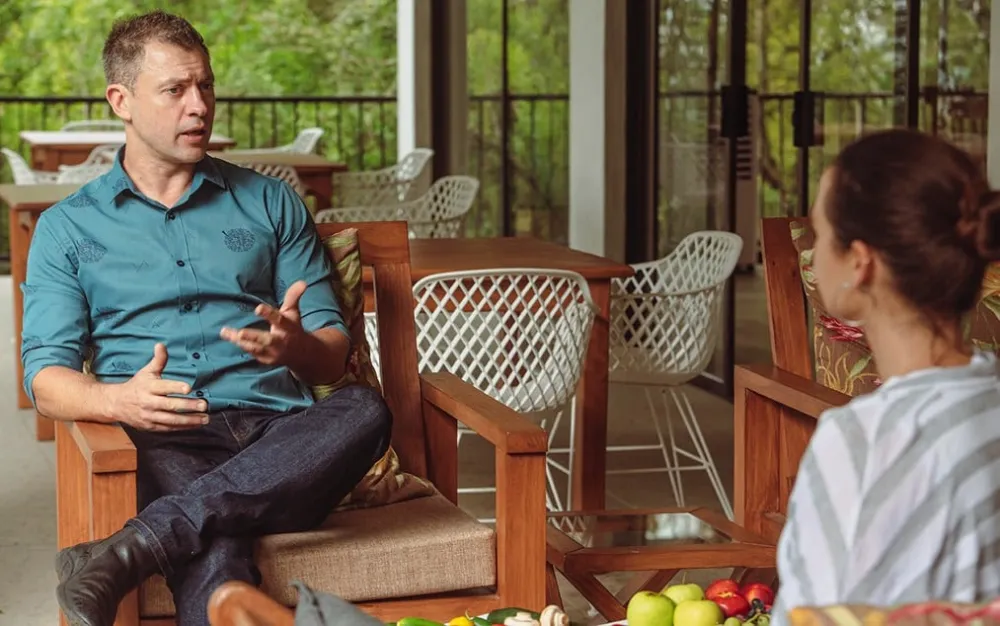As the world starts to focus more on AI, substantial one-on-one time with fellow humans is fast becoming a luxury. There is an omnipresence of smartphones, online meetings, online consultations, online courses, social media, remote work and apps for just about everything.
Authentic in-person interactions are increasingly rare, and this scarcity creates a need seldom satisfied in modern life.
Humans thrive on personal interactions. It is essential for intellectual, emotional and existential health. Machines can help our heart to pump, our lungs to breathe, our kidneys to filter, but they cannot replicate the complex multi-dimensional interaction between humans. Many machines or large language models will pretend to, but imitations of two souls connecting in space and time will always be a poor substitute for the real thing.
Personal interactions help with neurological health through the release of neurotransmitters such as oxytocin, serotonin and dopamine. These help with mood regulation, productive stress responses and overall feelings of wellbeing and happiness. They have many physical benefits as well and are neuro- and cardio- protective.

Personal interactions improve cognitive function. As essentially pro-social creatures, engaging in conversations and social activities challenges the brain, promoting cognitive functions such as memory, attention, and problem-solving. Regular social interaction can help keep the mind sharp and may even delay the onset of cognitive decline in older adults. It is also powerful at preventing mental health issues such as depression and anxiety.
In-person social interactions promote brain plasticity. This growth and adaptability are vital for learning and recovery from brain injuries. Conversations and social activities often involve mental stimulation, which can help maintain and improve mental functions. Engaging with others can introduce new ideas, perspectives, and challenges, keeping the brain engaged, active and growing.
In-person social relationships can provide a sense of purpose and meaning in life. Feeling valued and connected to others can enhance overall life satisfaction and contribute to mental health.
However, our reliance on digital communication often leaves us feeling isolated and disconnected, despite being constantly “connected.” The irony is palpable: while technology promises to bring us closer, it frequently pulls us apart, creating a void that only genuine, one-on-one interactions can fill.
One-on-one interactions signal a commitment to what truly matters.
In an era where productivity and efficiency are often prioritized over personal relationships, dedicating time to one-on-one interactions signal a commitment to what truly matters.
This is why spending substantial time with another human, with mutual trust and admiration, has become a precious commodity.

It’s an investment in our emotional well-being and mental health. Deep conversations, shared experiences, and the simple presence of another person can provide a level of fulfillment that virtual interactions simply cannot match.
Hoogland help people to connect on a deep level. The atmosphere of caring and truly being interested in overall health and wellbeing spark social interactions in a very special way.
We have often noted how guests interacting with each other is one of the main reasons why Hoogland is such a healing place. There is enough space for solitude when needed, but when human connection is required, it is available on a level rarely seen in the modern world.
